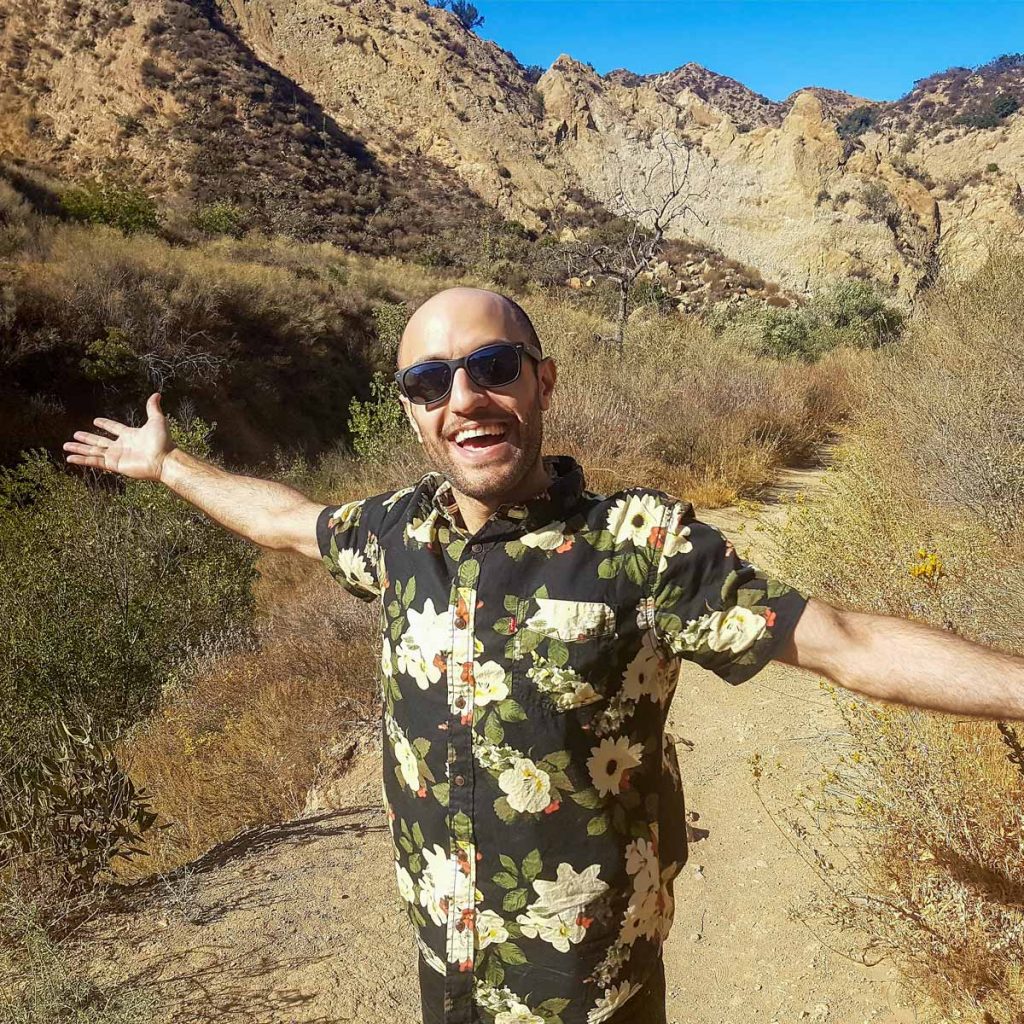Confessions of a Control Freak – Part 13: A Changer of Habits
Confessions of a Control Freak is a memoir blog series exploring the impact of Obsessive Compulsive Personality Disorder, its origins, and the rocky path to recovery. Names and identifying details have been changed to protect the privacy of all featured individuals. Subscribe to receive all future posts. More about OCPD here.
I
“What about this?” my mother asked, reaching into a shopping bag and producing a beige long-sleeved V-neck.
The shirt was one of many bargain bin purchases my mother regularly made.
“I’m not sure it’s really my style,” I said, unfolding the garment and holding it out for inspection.
“You can just wear it around the house then,” my mom said.
I caught the pleading note in her voice and felt a pang of inexplicable sadness.
“Okay, fine,” I said. “Thank you.”
Eying the shirt, I realized though that I was now obliged to hang it in my closet as if in preparation for later use, though I knew right now that this would never come to be.
But throwing out, donating, or regifting the shirt just felt wrong. I knew if my mother were to ever find out, my mom would view it as an act of rejection.
My mother’s gift was just one of the countless others she made to my adult self over fifteen years.
Like her gourmet dinners at home or the frozen meals she sent in the mail in an overnight postage bag, these were her way of expressing her enduring devotion.
The food was always gratefully received, but the clothes? These almost always had been discounted for a reason. Either they were unfashionable or had an unconventional cut. In many cases, they were at least two sizes too big for me.
When I tried to explain to my mother why I was refusing the gift, she would often try to suggest some other use for them.
And wanting not to hurt her feelings, I would defer.
II
The frugality that motivated my mother’s purchases spoke to a fear that she had harbored much of her life.
And it was only in my 30s that I learned the source of the fear. Mom had grown up in a household marred by constant financial anxiety and marital tension.
With time and trust, I was able to coax from my mom brief accounts of her disappointment and anger towards my grandparents.
What was clear to me was that when she spoke of not ever feeling truly understood, what she meant was that there had been a deficit of attunement between parent and child.
But try as I did to connect the dots for my mom between past griefs and present neurosis, time and time again, I would run up against a wall of resistance.
Decades of carrying this story had led to resignation. Revisiting mom’s relationship with her own parents did not, according to my mother, did not equal revelation.
Instead, she received my discussions about the dynamic between herself and her own parents as an extended criticism of her own parenting.
To my mom, I was a relentless excavator of grievances. My dredging of the murky waters of our past could only be motivated by one desire: to find evidence of her own failings.
To me, I was merely trying to understand the geological forces that had sundered us from each other.

III
Generations of families are linked by a causal chain of genetics, behavioral patterns, and shared circumstances.
My Iranian grandmother had survived famine, and her response had been to hunker down in anticipation of catastrophes still to come.
To prevent impoverishment and starvation, she had scrimped, saved, and stored food in bulk.
Yet in living in readiness for a worst-case scenario future, she’d never been able to truly enjoy the present.
In one example of this related to me by mom, my grandmother had insisted her husband buy two washing machines as future wedding gifts for her daughters.
These had remained in their boxes, untouched, for years, and after moving abroad to Australia neither of her daughters had been able to benefit from them.
The most astonishing part of the story was the fact my grandmother had complained bitterly when her husband hadn’t then purchased a third washing machine for their own use.
Looking upon my mother’s only fully stocked walk-in pantry, the second freezer, and garage shelves with their numerous cans, containers, and jars of dry and preserved food, it was hard not to see some similarities.
But mom’s amassing of supplies didn’t end there. Walking into my mother’s dining room, I would discover she had amassed a sizable collection of home and kitchenware.
Trips to the store often resulted in my mother returning with various discounted items: multiple cutlery and tea sets, an assortment of towels and tea towels, and entire collections of kitchenware.
What I saw as mindless hoarding, however, had merely been a survival instinct to which I too had found myself succumbing.
IV
Where my mother collected objects, I curated to-do lists.
These lists represented an inability to take satisfaction in my existing accomplishments or to find solace in the status quo.
There was always, it seemed, one more short film to edit, novel or blog post to write, or topic to research.
Never one to rest on my laurels, I made sure to fill any free time I had leftover with still more activities oriented toward personal and professional self-improvement, such as consuming podcasts, books, and courses.
When I considered the considerable volume of these to-do lists—and there were many—I eventually had to acknowledge that I could not have possibly completed all of them within my lifetime. And yet despite this knowledge, the lists continued to grow.
By amassing tasks, I was ensuring I always had something to do, thereby sustaining a state of anxious preoccupation.
The act of collecting in itself was an attempt to reassure myself I had taken every necessary step possible to ensure my future success.
That success, I believed, would help avert the old feared descent into poverty and obscurity that surely awaited.

IV
Some months after making the connection between my mother’s fears and my own, I decided it was time I broached the matter during one of our weekly phone conversations.
I did this, of course, with all the delicacy becoming of a human bulldozer.
“Do you think maybe you might be hoarding?” I asked.
“I am not hoarding,” my mother replied. “I’m keeping these things for you kids, for whenever you have homes of your own.”
The logic was there, and yet it was not impeccable. The increasingly cluttered dining room by this point had more than enough goods to furnish several homes.
Not that either my siblings or I were anywhere close to buying a home.
Entering into my third decade, I had few savings, no spouse, and no semblance of stability.
Over the past few years, I had moved homes and changed careers with an almost clockwork regularity.
The prospect of me ever owning anything more than a spare change of underpants was, at this point, laughable.
Of course, in justifying her scrupulous collecting for the future, what my mother did not realize was that this was an inheritance from her own mother.
Yet the crisis that had given that habit birth was more than a half-century old. It was no little more than a ritual, designed to preempt and appease the unpredictable whims of fate.
When, at last, my mother gave in to my appeals and started donating her excess items to charity, I knew I no longer had any excuse.
My time to figuratively clear the house had at last come.
V
Many of my OCPD traits could—in moderation—be considered advantageous.
Being a goal-getter who is great at managing time and money is, in most people’s estimation, an invaluable quality.
Taken to excess, these qualities become detrimental. Saving for the future devolves into miserliness, self-discipline teeters towards self-deprivation, and perfectionism corrodes one’s sanity.
Often underpinning OCPD behaviors is a superb ability to delay gratification—a skill that without a doubt is key to the success of human endeavors.
Keep at the delaying, however, and you’re to experience a dissatisfied, if not joyless, existence.
And yet these behaviors were so deeply embedded in my psyche, that I could not imagine surrendering them, let alone renouncing my identity as a proud eater-of-poison.
If I could not escape OCPD, maybe the best alternative then was finding a middle ground.
For this to be possible, I would have to reckon with the entombed homunculi; to unify thoughts with alienated emotions.
For as long as I could remember, I had resisted opening up about my feelings, believing—often with reason—that they would not be received in an atmosphere of warmth and kindness.
But with the help of an affirming therapist, surrendering the shield of rigid protections behind which I’d long hidden was suddenly possible.
No longer did I need to sort everything I experienced according to a good-or-bad dichotomy, or hold myself—and others—to impossibly high standards.
This change was further facilitated by my decision to carve out a meditation practice. Through mindfulness, I learned to observe, rather than be subsumed by, the incessant chattering of the “monkey mind”.

VI
Over the course of a few years, I went from not acknowledging my emotions to being present with them.
Rather than viewing them as universally destructive, I began to see their value as a means of catharsis and communication.
Expressions of feeling need not be fraught with shame but regarded instead as an opportunity to forge new understandings of both myself and others.
In moments of distress, I stopped resorting to denial and dissociation, but instead listened to the feelings that arose, and offered myself the self-compassion I’d long lacked.
When my mind and body cried out for rest, I obliged, taking breaks, listening to guided audio meditations, stepping outside for a walk, and setting aside for fun activities and friends.
Treating self-care as a daily practice rather than a rare and reluctant indulgence allowed me to offer comfort and create serenity where it was otherwise lacking.
In doing so, I had created a space in which I could become more than just a certainty addict.
But my path to accepting ambiguity was by no means straight, but rather, a journey of a thousand stumbling steps; of gains made and sometimes lost; of backsliding and self-sabotage.
One day, I might forget to take breaks and miss a meditation session. In the absence of self-care, my anxiety would creep back up, and I would act once more like a man possessed.
While shaking off the OCPD demon again might take hours, if not days, poise no longer seemed unattainable.
Obsessions and compulsions might remain, but they were no longer an inextricable part of my personhood.
My OCPD was not so much exorcized, as removed from a position of equal footing.
Thus banished, I could now see him not as a crippling curse, but as the tiny black dot of yin in the white expanse of my yang; the necessary part of a greater good.
Together, he and I had cut our way through the thorny thickets of adversity. Now, with those thickets far behind us, a single ritual remained.
This ritual involved a speaking of the vital words; words that would formalize our severance: “Thank you, and goodbye.”
This concludes Confessions of a Control Freak. If you enjoyed this memoir series, please check out my previous series, Anxious Seeks Canine.

Essy Knopf is a therapist who likes to explore what it means to be neurodivergent and queer. Subscribe to get all new posts sent directly to your inbox.
© 2025 Ehsan "Essy" Knopf. Any views or opinions represented in this blog are personal and belong solely to the blog owner and do not represent those of people, institutions or organizations that the owner may or may not be associated with in professional or personal capacity, unless explicitly stated. All content found on the EssyKnopf.com website and affiliated social media accounts were created for informational purposes only and should not be treated as a substitute for the advice of qualified medical or mental health professionals. Always follow the advice of your designated provider.


